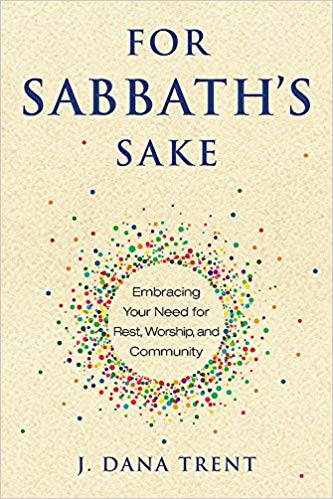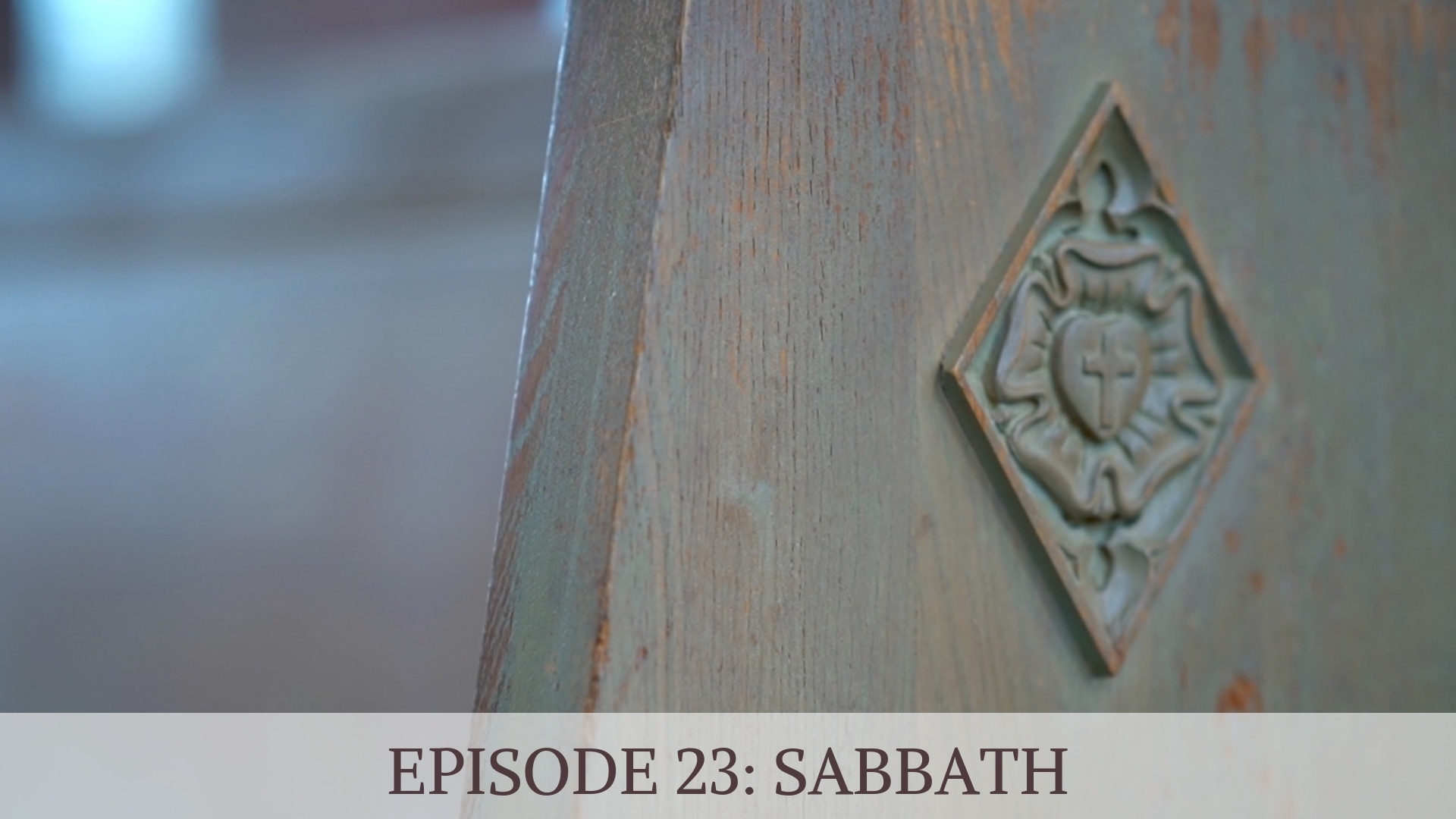Sabbath.
I have been trying to practice a weekly Sabbath very intentionally for about 14 years now. I tried in fits and starts to take time off, and practice Sabbath rest in the years I served the church full time, but I would say with minimal success. Graduate school also had a way of sneaking into every corner of my mind and life, and making genuine time apart always a challenge for me. Even now after many years of more attention and intention, Sabbath remains an aspirational piece of my spiritual life.
Somehow, making plans to expand my family and bring another small human into the world, brought the practice of Sabbath more concretely into my life, and the practice of weekly rest and renewal became even more urgent.
I’m thankful for Rachel Gunter Shappard inviting me to lead a women’s retreat specifically about Sabbath practices during a pivotal moment. I’m also grateful for David and Colleen Burroughs for asking me to write curriculum for Passport Youth Camps several times, including a year when the theme was called Katundu (baggage, junk, stuff in Chichewa). Campers spent the summer exploring how to be less tied to their stuff and how to lean into silence, solitude and simplicity, all deep gifts of Sabbath practice. Each time I’ve taught and written about Sabbath and related spiritual practices, the opportunity invites me deeper into the rituals and practices of keeping Sabbath.
 There are many books exploring the rituals and practices of Sabbath in the Jewish and Christian traditions. This week’s resources is a newer installment in that wealth of knowledge, stories and advice. J. Dana Trent’s For Sabbath’s Sake: Embracing Your Need for Rest, Worship, and Community. In this book, the author recounts her experiences of seeing the need for deeper rest and renewal in her life and coming more fully into the practice of Sabbath.
There are many books exploring the rituals and practices of Sabbath in the Jewish and Christian traditions. This week’s resources is a newer installment in that wealth of knowledge, stories and advice. J. Dana Trent’s For Sabbath’s Sake: Embracing Your Need for Rest, Worship, and Community. In this book, the author recounts her experiences of seeing the need for deeper rest and renewal in her life and coming more fully into the practice of Sabbath.
Here are a few things I have learned over my time of practicing Sabbath.
1) The practice of Sabbath has many dimensions, but key among them are stopping the work, effort, spending and consuming, creating, and all kinds of attempts to shape the outcomes of life. On the positive side the invitation is to rest, play, worship, relational reveling, and wandering without purpose. The theological grounding comes in the stories of creation, when God rested, thousands of years of wisdom in which the Jewish people practiced Sabbath-keeping, the renewal of the practice in the teachings of Jesus, and the embrace of a belief that we neither run nor control the world, our lives are finite and our trust belongs in the sacred and holy presence which created and renews all things.
2) Sabbath is countercultural. So to practice Sabbath with any consistency one needs a community of practice or a sense of calling to keep growing in the practice. It may be most helpful when both calling and community are available to support the spiritual practice of weekly Sabbath keeping.
3) Jewish and Christian religious practice, and remnants of Sabbath laws and cultural traditions, make certain times of the week more amenable to Sabbath practice. The five day work week, weekly worship in Jewish and Christian houses of worship which happens most often between Friday and Sunday, and even the remaining consumer patterns of store closings and the rhythms of events each week, do provide some basic structure to lean on when beginning a practice of Sabbath. Of course you can have your Sabbath from Thursday night to Friday morning or Monday morning to Tuesday afternoon if it works for you, all the information around you will just be sending you other messages and making rest and renewal even more challenging. However, if that is the time you have, then by all means give it a try. My intention has been to take Saturday evening through Sunday supper time, as best as I can, away from technology, shopping, consuming, creating, cleaning, making and doing. Instead I lean into space and time for worship, exercise, puttering around and being with my family and friends.
4) We need Sabbath practice more than ever in human history. Everything I said in the last point is being undermined on a daily basis with the never ending news cycle, the mobility of our communications with small computers in our pockets, and inconceivably endless amounts of new ideas, music, research findings, work opportunities, and social engagements coming at us from every direction every day. The demands we place on the earth’s resources are fast depleting those gifts. The earth itself needs rest from human extractions. As one of the enduring gifts embedded in the long-standing traditions of Judaism and Christianity, Sabbath rituals and practices are needed more now than ever.
5) Sabbath is a confrontation of injustice. My description of Sabbath thus far is also one from a middle-class, white-identified take on how to make space and time for rest and renewal. This privilege is not something everyone enjoys. Not only the news cycle and internet offerings, but more and more demands for 24-hour shopping, consuming, and services of all kinds, mean more people must be at work for more hours of every day. When approached thoughtfully and intentionally, Sabbath can be a call for righting injustice that asks for fairness and dignity for all workers and resists the gods of consumption.
6) I don’t practice Sabbath so that I can be more productive. Yet this is one of the great temptations because it is one of the benefits of practicing Sabbath. Sabbath rest is an end in itself. Having time to be bored, to play, to sleep, to be lost in worship without a concern for the ending time so as to engage fully in the community’s sense of the holy, to revel and enjoy those closest to me, the people who have my back, these are the gifts of Sabbath. Period. They are gifts that keep on giving including in the busier and fuller and more anxious times of life. Because Sabbath is built around the spiritual work of attending, loving, and listening, making a significant part of one day each week into Sabbath, deepens these human skills and leads to richer relationships and potentially to more profound wisdom. At least that is my observation. Not simply an observation of myself but rather seeing how those who are able to practice Sabbath consistently are able to show up more fully to the rest of their lives.
This week’s episode of Three Minute Ministry Mentor shares with you a story told to us by Marcus,* a white pastor who is part of the Learning Pastoral Imagination Project. Several years ago, Marcus spent a summer leading his congregation to think more deeply about leadership. For his own spiritual well-being he gave more attention to the practice of Sabbath that summer. Here is his story.
How do you practice Sabbath? What have you found helpful for the practice?
Do you have feedback for Three Minute Ministry Mentor? We invite you to share your feedback here!
To catch up on Three Minute Ministry Mentor, just navigate over this way to the latest episodes just for you! To listen to all 3MMM episodes as podcasts, choose your favorite place to get episodes and subscribe today!
If you want each episode delivered to your inbox each week, why not sign up today or share this link with a friend?
*Marcus is a pseudonym. This story gathered in the LPI Project is shared with his permission.




